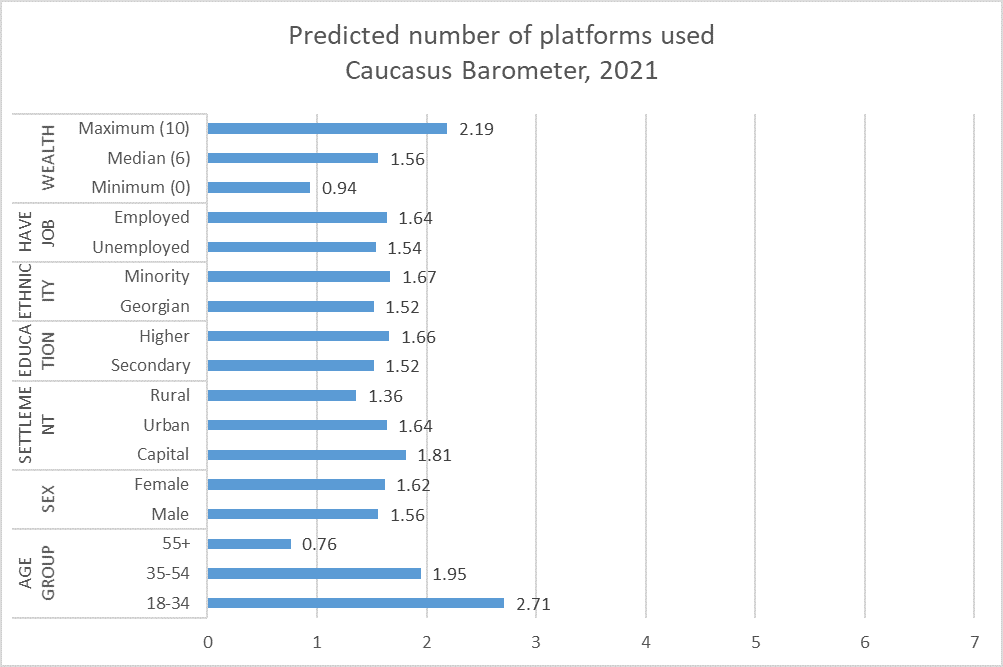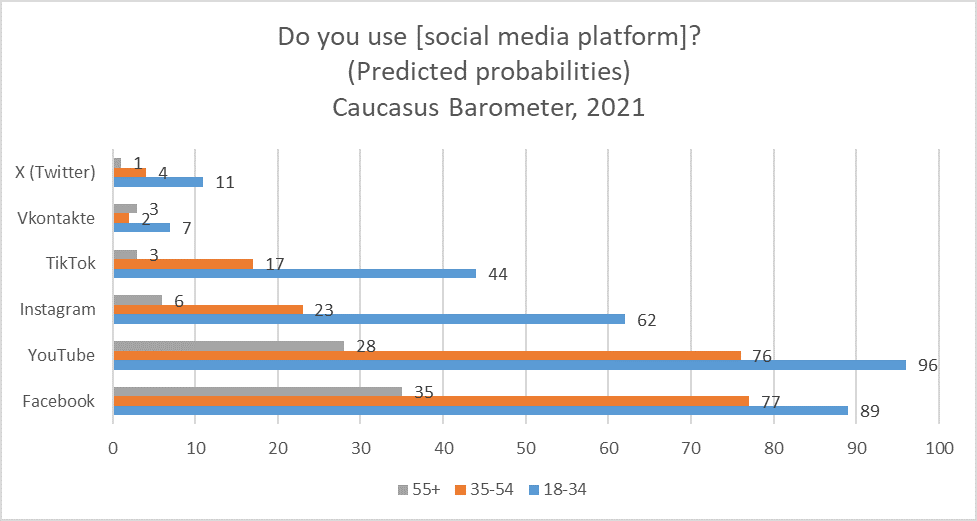A CRRC Georgia survey found most Georgian respondents use more than one social media platform, with younger people and people living in cities using a greater variety of platforms.
According to Georgia’s National Statistics Office, 96% of Georgia’s internet users use social media. While social media’s popularity in Georgia is clear, which platforms are most used and who uses the most platforms?
According to the 2021 Caucasus Barometer survey, 68% of Georgians use the internet daily. The most frequently mentioned destinations for those online are Facebook, with 69% of survey participants using the site, followed by YouTube, with 61% of respondents using the platform. Use of other sites such as Instagram (26%), TikTok (19%), Odnoklassniki (6%), Twitter (5%), and Vkontakte (5%) trails in comparison.
An analysis found the number of different platforms respondents reported using, with the data suggesting that the average number is two.
When this data is broken down, it shows that among demographic factors, the strongest predictor of using a diversity of platforms is age. On average, people aged 18-34 use three platforms while those 55+ use only one, controlling for other factors. Those aged 35-54 use two platforms, controlling for other factors.
Aside from age, the number of platforms someone uses is also associated with settlement type. People living in rural settlements use one platform, while those in Tbilisi and other urban settlements use two on average, controlling for other factors.
Employment status, ethnicity, education level, and sex are not correlated with the number of platforms a person uses.

The above pattern holds across the different platforms asked about on the survey — young people (18-34) are more likely than people in older age groups to use each platform asked about on the survey, controlling for other factors.

The above data shows that young people both use a more diverse set of social media platforms than older people, while also using each and every social media platform asked about more often than people 35 and older.
This article was written by Zachary Fabos, a Researcher at CRRC Georgia. The views presented in the article are the author’s alone and do not necessarily represent the views of CRRC Georgia or any related entity.
Note: The analysis in this article makes use of logistic regression analysis. The analysis included gender (male, female), age group (18-34, 35-54, and 55+), settlement type (capital, urban, rural), education (secondary/ secondary technical/ lower, and tertiary), ethnicity (ethnic Georgian, ethnic minority), employment (not employed, employed), and a wealth index (0-10), as predictor variables.
The data used in this article is available here.










